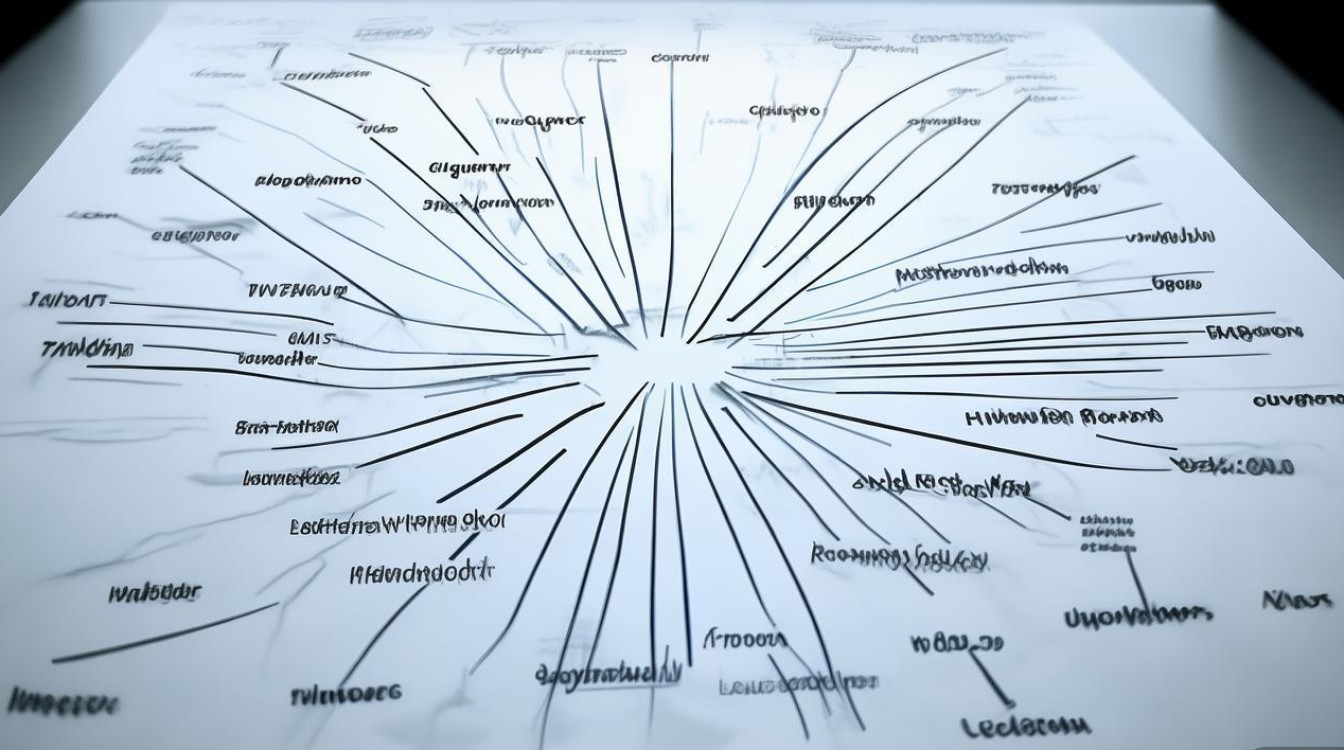民事诉讼思维导图是一种系统化梳理民事诉讼全流程、核心要素及逻辑关系的可视化工具,它以“权利主张—法院裁判”为主线,将程序规则、实体规范、证据规则等要素有机串联,帮助使用者快速把握民事诉讼的“骨架”与“脉络”,以下从程序阶段、核心要素、法律关系三个维度展开具体阐述,并通过表格对比关键环节,最后附相关问答。

民事诉讼思维导图的程序阶段维度
民事诉讼程序是思维导图的“纵向主线”,以时间顺序划分为起诉与受理、审理前的准备、开庭审理、裁判与执行四大阶段,每个阶段包含明确的法定节点和核心任务。
起诉与受理阶段
起诉是程序的起点,需满足“原告适格、被告明确、有具体诉讼请求和事实理由、属于法院受案范围”四个条件,法院受理后7日内审查,符合条件的裁定立案,不符合的裁定不予受理(可上诉),此阶段的核心是“诉的合法性审查”,思维导图中需突出起诉状内容(当事人信息、诉讼请求、事实与理由、证据清单)、管辖法院确定(级别管辖、地域管辖、专属管辖等)及受理通知书的法律效力。
审理前的准备阶段
法院立案后,需在5日内将起诉状副本发送被告,被告15日内提交答辩状;法院可根据案情组织证据交换、庭前会议(明确争议焦点、固定证据、处理管辖权异议等),此阶段的核心是“争点整理”,思维导图中需包含“举证期限”(普通程序不少于30日,简易程序可缩短)、“证据交换规则”(庭前交换的证据需在庭审中出示)及“诉讼权利义务告知”(如合议庭组成、回避权等)。
开庭审理阶段
庭审是程序的核心环节,依次为开庭准备(核对当事人、宣布案由、告知权利义务)、法庭调查(原告陈述、被告答辩、举证质证)、法庭辩论(围绕争议焦点发表意见)、最后陈述。“举证质证”是关键:当事人需围绕证据的“三性”(真实性、合法性、关联性)发表意见,法院对无争议的证据可当庭确认,对有争议的证据需结合认证规则(如最佳证据规则、非法证据排除规则)进行判断,思维导图中需标注“庭审笔录”的效力(当事人核对后签字确认,拒绝签字不影响效力)及“延期审理”的法定情形(如必须到庭的当事人未到庭、需要通知新证人等)。
裁判与执行阶段
庭审结束后,法院当庭宣判的,10日内发送判决书;定期宣判的,宣判后立即发送,当事人不服一审判决的,可在15日内提起上诉;二审法院可作出判决、裁定或发回重审,生效裁判后,义务人未履行义务的,权利人可在2年内申请强制执行(执行措施包括查询冻结存款、查封扣押财产、拍卖变卖等),此阶段思维导图中需区分“上诉期”(判决15日、裁定10日)、“再审启动方式”(当事人申请、法院依职权启动、检察院抗诉)及“执行异议之诉”(案外人对执行标的异议时可提起)。
民事诉讼思维导图的核心要素维度
核心要素是程序的“横向支撑”,包括当事人、诉讼标的、证据、诉讼请求等,这些要素贯穿程序始终,直接影响裁判结果。
当事人
当事人是“民事诉讼的主体”,包括原告、被告、第三人(有独立请求权第三人、无独立请求权第三人),其核心要素为“诉讼权利能力”(公民始于出生、终于死亡,法人始于成立、终于终止)和“诉讼行为能力”(完全民事行为能力人独立实施,限制行为能力人需法定代理人代理),共同诉讼(必要共同诉讼、普通共同诉讼)和代表人诉讼(人数确定或不确定)是当事人的特殊形态,思维导图中需标注“当事人恒定原则”(诉讼中当事人不得更换,诉讼请求可变更但需限于原诉讼标的)。
诉讼标的
诉讼标的是“当事人争议的民事法律关系”,是法院裁判的对象,其与诉讼请求的区别在于:诉讼标的是“争议的法律关系性质”,诉讼请求是“基于该关系提出的具体主张”(如基于借贷法律关系,诉讼请求可能是“返还借款本金及利息”),思维导图中需强调“诉讼标的物”(法律关系指向的对象,如借款合同中的“借款”)与“诉讼标的”并非同一概念(如“房屋买卖”中,诉讼标的是房屋买卖关系,诉讼标的物是房屋)。
证据
证据是“认定案件事实的根据”,包括书证、物证、视听资料、电子数据、证人证言、鉴定意见、勘验笔录,思维导图中需突出“举证责任分配原则”:“谁主张,谁举证”(一般原则),但特殊侵权(如环境污染、高度危险作业等)实行“举证责任倒置”。“证据能力”(证据能否被采纳,如非法证据排除)和“证明力”(证据对案件事实的证明程度,如原始证据优先于传来证据)是证据审查的核心维度。
诉讼请求与抗辩
诉讼请求是“原告向法院提出的具体要求”,包括确认之诉(确认法律关系存在与否)、给付之诉(请求履行义务)、形成之诉(请求变更法律关系),被告的抗辩包括“否认抗辩”(否认诉讼请求事实)、“免责抗辩”(承认事实但主张免责事由,如已过诉讼时效)、“反诉”(被告向原告提出独立诉讼请求,需与本诉有牵连),思维导图中需标注“反诉”的条件(本诉进行中、管辖法院一致、牵连性)及“诉讼请求变更”的限制(不得超出原诉讼标的范围,除非被告同意)。
民事诉讼思维导图的法律关系维度
法律关系是“民事诉讼的底层逻辑”,以“诉权”与“审判权”为核心,体现当事人与法院、当事人之间的权利义务互动。
诉权与审判权的关系
诉权是“当事人请求法院保护民事权益的权利”,包括程序诉权(启动、推进程序)和实体诉权(获得实体保护);审判权是“法院行使的民事裁判权”,具有被动性(不告不理)、中立性(居中裁判)、终局性(生效裁判具有既判力),思维导图中需明确“诉权制约审判权”(当事人决定审理范围和对象)和“审判权规范诉权”(法院对不合法诉权可驳回)。
当事人之间的法律关系
当事人之间的实体法律关系(如合同关系、侵权关系)是民事诉讼的基础,程序规则是为了保障实体权利的实现,合同纠纷中,当事人需围绕“合同成立、生效、违约责任”等实体要件举证;侵权纠纷中,需围绕“侵权行为、损害后果、因果关系、过错”等要件举证,思维导图中需标注“实体法与程序法的衔接”:如《民法典》中的诉讼时效制度(3年普通时效、20年最长时效)直接影响当事人的胜诉权。
法院与其他主体的关系
法院与检察院的关系:检察院对生效裁判可抗诉,法院必须再审;法院与诉讼代理人的关系:律师、近亲属等代理人需提交授权委托书,一般授权可代为承认、放弃、变更诉讼请求,需特别授权;法院与证人的关系:证人有出庭作证义务,无正当理由拒不出庭的,可拘传或罚款。
关键环节对比表格
为更直观展示民事诉讼中的核心区别,以下通过表格对比重要概念与规则:
| 对比维度 | 内容A | 内容B | 法律依据 |
|---|---|---|---|
| 管辖法院 | 原告住所地法院(合同纠纷) | 被告住所地法院(一般地域管辖) | 《民事诉讼法》第24条 |
| 举证责任 | 产品质量缺陷(侵权) | 合同成立(合同纠纷) | 《民事诉讼法》第67条(举证责任倒置) |
| 诉讼类型 | 请求确认合同无效 | 请求支付违约金 | 《民事诉讼法》第122条(确认之诉vs给付之诉) |
| 审判程序 | 简易程序(基层法院) | 普通程序(各级法院) | 《民事诉讼法》第157-164条 |
| 救济途径 | 对一审裁判上诉 | 对生效申请再审 | 《民事诉讼法》第164条、第207条 |
相关问答FAQs
Q1:民事诉讼思维导图中,如何区分“必要共同诉讼”与“普通共同诉讼”?
A:二者的核心区别在于“诉讼标的的同一性”和“是否必须合并审理”,必要共同诉讼是指诉讼标的是同一的共同诉讼(如合伙纠纷中全体合伙人作为共同被告),法院必须合并审理,且不可分案裁判;普通共同诉讼是指诉讼标的是同种类的共同诉讼(如多名消费者对同一商家提起的侵权诉讼),法院可合并审理(需经当事人同意),也可分案裁判,且裁判结果可独立,思维导图中可通过“诉讼标的是否同一”“是否必须合并”“裁判结果是否独立”三个维度进行区分。
Q2:在证据收集阶段,当事人因客观原因无法自行收集的证据,如何通过思维导图体现其救济途径?
A:当事人因客观原因(如证据由对方或案外人控制)无法自行收集的证据,可通过“申请法院调查收集”或“申请证据令”解决,思维导图中需明确“申请条件”(①证据属于国家有关部门保存并须法院调取的档案;②涉及国家秘密、商业秘密或个人隐私;③当事人及其诉讼代理人确因客观原因不能自行收集)和“申请流程”(①在举证期限届满前书面申请;②说明理由及证据线索;③法院审查后决定是否调取,不予调取的需书面说明理由),若对方当事人持有证据但拒不提交,法院可推对方主张成立(《民事诉讼法》第67条),这一“证据妨害规则”也需在思维导图的“证据收集”子节点中标注。











